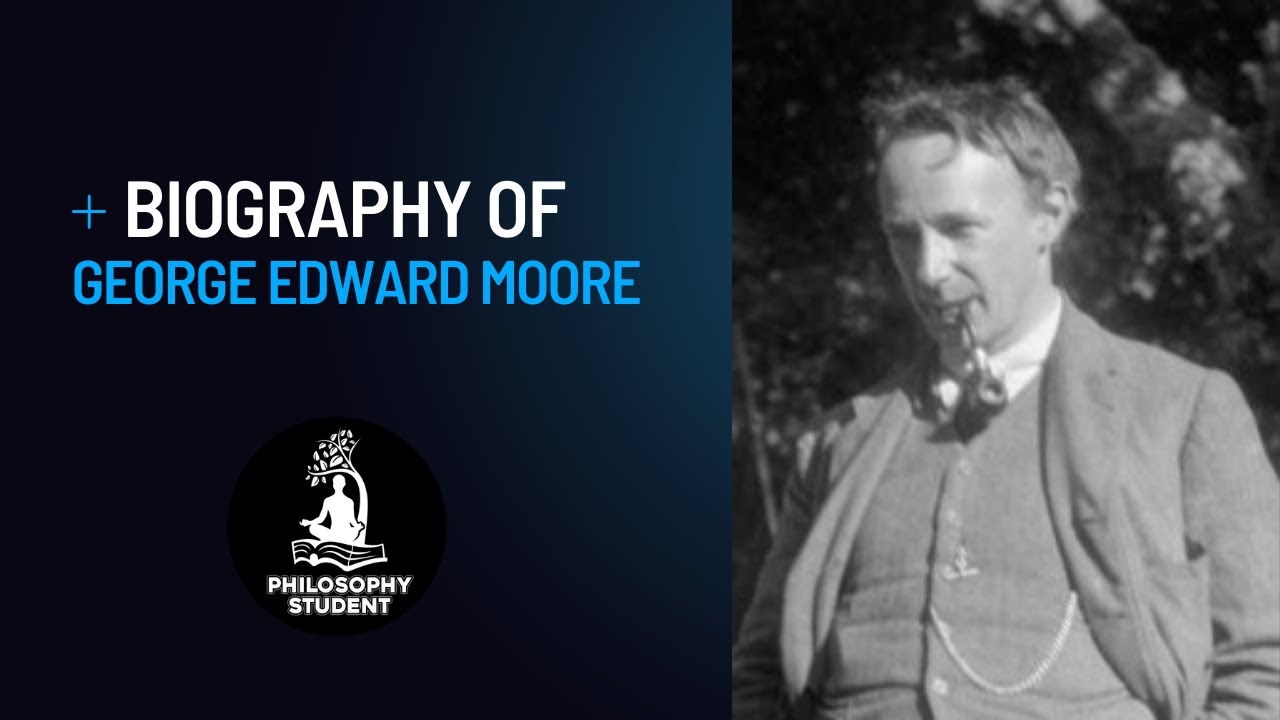Born on November 4, 1873, in London, G. E. Moore enrolled in Trinity College, Cambridge to study classics but met Bertrand Russell, then a philosophy student two years ahead of him, and Philosophy Fellow J. M. E. McTaggart. Both encouraged Moore to pursue philosophy, which he immediately added to his classics focus. In 1896, he graduated with a First Class degree in philosophy and emulated both Russell and McTaggart by winning, in 1898, a Fellowship at Trinity College. This enabled him to continue studying philosophy there.
Moore moved steadily away from British idealism and toward the analytic tradition, taking Russell with him. Moore’s fellowship ended in 1904, and in 1911 he was appointed to a lectureship at his alma mater. Except for an American sojourn during 1940-1944, he lived and worked in Cambridge for the rest of his life and career
Moore began editing Mind, the preeminent British philosophical journal, in 1921 and, four years later, was appointed a full professor. He was now widely regarded as the most important British philosopher of the age. When Ludwig Wittgenstein returned to Cambridge after 1929, the university became peerless as a world-renowned center of philosophy. Moore retired as a professor in 1939 and was succeeded by Wittgenstein. Moore stepped down as editor of Mind in 1944.
Moore was a true humanist intellectual, who was associated with London’s celebrated Bloomsbury Group, which included the literary luminaries Lytton Strachey, E. M. Forster, and Virginia and Leonard Woolf, as well as the great economist John Maynard Keynes. As a philosopher, Moore was best known for his work in ethics, publishing in 1903 Principia Ethica, which set out to prove that “good” is essentially impossible to define. In this, he coined the term “naturalistic fallacy” to describe the consequences of confusing the use of a term in a specific argument with the definition of the term in all arguments. While it is possible to define a certain thing as good, the property of goodness itself remains indefinable. He went on to argue that good is a non-natural property and thus not within the bounds of natural science. Questions of goodness, therefore, could be answered only by appeal to what Moore described as “moral intuitions.”
Moore stood against both idealism and skepticism, arguing in his influential 1925 essay “A Defence of Common Sense” that neither idealists nor skeptics could provide reasons for accepting that their metaphysical premises with respect to the external world were more plausible than the force of common sense. He formulated “Moore’s paradox,” in which certain statements that are paradoxical and appear absurd nevertheless can be true, are logically consistent, and are not contradictions. For instance, the sentence “It is raining, but I don’t believe it is raining” can be true, is not logically inconsistent, and is not contradictory. Philosophy has yet to provide an explanation for the paradox.
As an advocate of commonsense concepts, Moore cast a fresh light on ethics as well as epistemology and metaphysics, at once defining the limitations of philosophical idealism while simultaneously elevating the human mind to the status of an organ quite sufficient to understanding the world external to it. He died on October 24, 1958.




































